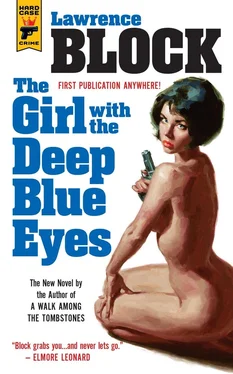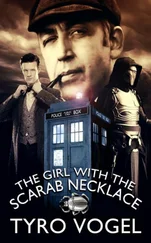And the task itself was pleasantly mechanical. It gave his mind a chance to wander.
He hadn’t signed anything for the Taurus or the Ruger. The bearded fellow never even raised the subject, just conducted the transaction with no more ceremony than if Doak had been purchasing a can of window putty. The man with the Ruger had flashed him a conspiratorial look and said, “Now of course you’ve been a legal resident of the state of Georgia for no less than thirty days. Goes without sayin’, don’t it?” He didn’t wait for a nod. “And you’ve never been convicted of a felony, or spent any time in a mental institution, nor do you have any intent to commit a crime, harm another human being, or overthrow the lawful government of either the state of Georgia or the United States of America. We good with that?”
Cleaning the guns let him get used to them, their weight, the way they felt in his hand.
But where to keep them? Technically, their possession entailed a certain risk, in that they were unregistered handguns, but he wouldn’t have cared to guess at the percentage of Gallatin County households in the same position. From a practical standpoint, the guns posed no danger to him until he put them to their intended use.
Of course, he thought, their provenance was unknown to him. They’d come into his possession with no paper trail, he hadn’t requested or been offered a receipt for either transaction, and who was to say that a previous owner hadn’t used the Taurus in a holdup, or reached for the Ruger when an episode of road rage got out of hand?
Don’t put that gun in your mouth, son. You don’t know where it’s been.
Where he kept the guns was not hugely important, but working it out saved him from thinking about other more difficult questions. So he devoted more time to the matter than it probably required.
He ruled out the nightstand, where he kept the Smith, and the closet shelf that held the Smith’s spare ammo. Ditto the garage, where the most casual sort of prowler could walk off with them.
He’d never bought a safe, didn’t own anything that required that sort of protection. And the trouble with a safe was that it was the first and most obvious place for a person to look. Most of the time the person in question was a burglar who’d spin the combination dial twice and give up, but he was more worried about someone with a badge who could point to the safe and ask him to open it.
Easy enough to pry a baseboard loose and create a hiding place behind it, but wasn’t that likely to be more trouble than it was worth? It would take time to do, and so would retrieving the guns when he wanted them.
Nor would it stand up to a thorough search, and that was the sort that most concerned him. He’d been a part of enough efforts of that nature — looking for dealers’ drug stashes, more often than not — to know how many ways there were to hide something, and how futile most of them ultimately proved to be.
Hard to play innocent, too, when a couple of cops with x-ray vision move your dresser aside, pull up your carpet, pry a few floorboards loose, and find what you’d concealed there. Oh, that thing, Officer? Just a safety precaution. I didn’t want to leave it out where the neighbor’s kid might play with it .
He wound up tucking everything into a kitchen cupboard. The kitchenware he’d bought didn’t amount to much, and fit with room left over into those cupboards within easy reach. There was a top tier of cupboards, and to get into the one at the far left you had to either stand on a chair or play in the NBA. He’d stood on a chair once, to assure himself it was empty; he did so again now, and when he got down from the chair, his gun show purchases had a new home.
In the morning he checked for a message from Lisa, called her when he didn’t find one. His call went straight to voicemail, and it was several hours before she got back to him.
“Today’s a mess,” she said. “Can we meet tomorrow?” And, after they’d set a time, “Gotta go. Bye.”
He set the phone down with a sense that something was wrong. The brevity of the conversation, her hurry to be done with it—
The phone rang. He picked it up and said, “Can you talk now?” but it went on ringing, and he realized it was the other phone.
Caller ID showed a number he recognized but couldn’t place. He took the call, said “Miller.”
A woman said, “Mr. Miller? Will you hold for Mr. Otterbein?”
Really?
He said he would, and a moment later Otterbein was on the line. “Miller,” he said. “You find any more of my long-lost relatives?”
“I’m afraid I’ve stopped looking,” he said. “Unless you’ve remembered something you think might prove useful.”
“I haven’t, and as much as I’d like to embrace Cousin Elmer — did I get that right? Elmer?”
“Elmer Otterbein.”
“Nice to know I can remember his name, even if I can’t come up with a way for us to be blood kin. You swamped with work, Miller?”
“I beg your pardon?”
“You got a deskful of missing heirs and such? Because you’ve been on my mind ever since you walked into my office.”
“Oh?”
“So why don’t you walk into it a second time,” he said, “and we’ll talk. You found your way here the once so you shouldn’t have any trouble finding it again. Say half an hour?”
At eleven-thirty the following morning he pulled into the Chiefland Mall. The Lexus was already there, at the J. C. Penney side of the lot. He drove them to their motel, and in the car she said she’d been more abrupt than she intended the last time they’d talked. But she’d been rushed, she explained, and an earlier exchange with George had left her short-tempered.
In their room, with the doughnut on the outside doorknob and the bolt turned, she came into his arms and kissed him, and something relaxed within both of them, some knot of tension dissolved and went away.
When the embrace ended they stood a few feet apart on the worn carpet and took off all their clothes. His heart filled at the sight of her.
And not just his heart. “Look at you,” she said, and reached to take hold of him. “Oh, no stories today, no drama, nothing. Just fuck me.”
Afterward he said, “Story time. I’m afraid it’s not a bedtime story, because I’ve been going to bed alone since the last time we were in this little room. But I saw your husband again.”
“Was that wise?”
“Well, it was that or hang up on him. He called me.”
He told her about the call, and about the meeting forty minutes later in Otterbein’s office. “He gave me a card with a name and address on it,” he said, “and showed me a woman’s picture.”
“I hope I was wearing more in the picture than I am now.”
“It wasn’t you,” he said. “George has a girlfriend.”
Her name, he said, was Ashley Hannon, and she had recently moved into a side-by-side duplex on Stapleton Terrace. She was twenty-seven years old, with a General Studies diploma from a two-year college in Ocala and a certificate from the Broward County Physiotherapy Institute attesting to her competence in Shiatsu, Swedish massage, and Reiki, and there was something else, but he couldn’t remember what it was.
“Fellatio,” Lisa suggested.
“That may have come under General Studies. She spent two years in Broward County, mostly in Pompano Beach, and then she moved to the Gulf Coast and took a position in a massage parlor in Clearwater.”
“A position? Kneeling, would be my guess.”
It wasn’t a whorehouse, he told her. All of the women had undergone genuine massage training, with certificates similar to Ashley’s. They used professional massage tables and offered a variety of techniques, and all you got for the posted rate was a standard non-sexual massage.
Читать дальше












